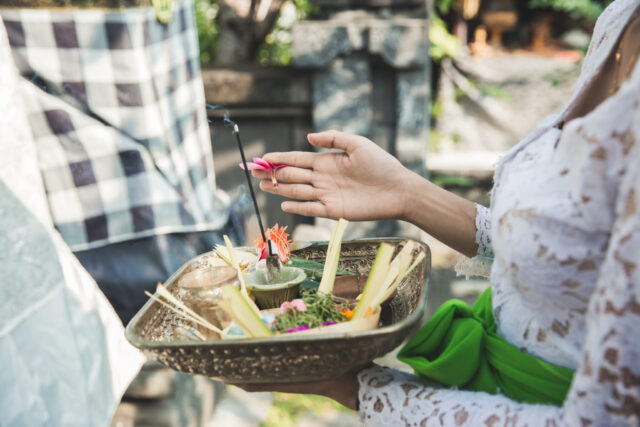5 Fascinating Birth Rituals From Around The World
Although childbirth is an experience that unites women across every border, the way societies celebrate this momentous event varies immensely. Here in America, gender reveals, baby showers, sip and sees and newborns being swaddled in pink and blue striped blankets used in hospitals nationwide are just a few of the commonalities surrounding childbirth.
But much like music, cuisine, and entertainment, traditions are something that varies with culture. To celebrate these differences surrounding something that undoubtedly unites women worldwide, here are 5 fascinating birth traditions from around the globe.
Bali: Bury The Placenta
Many aspects of Balinese Hindu culture is steeped in ritual, and childbirth is no different. After delivery, the placenta called an ari-ari (ari meaning “younger sibling”) is given a proper burial. This is because the Balinese believe that the placenta is quite literally one of four siblings that the baby inhabits the womb with, the other three being the amniotic fluid, blood, and belly button. These four “siblings” are said to protect the baby throughout gestation and are ceremoniously celebrated through blessings and offerings before respectfully being laid to rest.
Finland: Baby box
Finland is often famed for having some of the best paternity leave policies in the world- but the perks don’t stop there. For the past 75 years, the Finnish government has been giving new parents a baby box filled with all the newborn essentials. The baby box, which is distributed by Kela, Finland’s social security institution, is stuffed to the brim with approximately 60 new mommy must-haves, such as baby clothes, nighttime necessities, personal care products, and more. The best part? The box itself can be converted into a safe and cozy crib- mattress included.
Madagascar: Mother’s Mask
In Madagascar, new mothers often wear a protective mask, known as a masonjoany, which is comprised of the ground-up sap of a sandalwood tree and water. This mask is said to not only protect the new mother’s skin from the harsh sun but also ward off evil spirits that might wish ill upon her and her family. This ceremonial practice is always performed on the seventh day following delivery, which is the first time the mother is to leave her house and is celebrated with family.
Mexico: Quarantine
In many Latin cultures, a postpartum mother is expected to embrace a 40 day period of la cuarentena, or quarantine, in which she is to solely focus on breastfeeding and recovery. Although the word quarantine might sound a bit alarming, this cultural practice is anything but. The new mother is always surrounded by other female relatives who help with chores, prepare nourishing meals, and take care of any additional children she might have. After this 40 day period of rest, the mother is said to be strong enough to resume her daily life.
Nigeria: Baby’s First Bath
The Yoruba community in Nigeria has a sacred ceremony that surrounds the baby’s first bath. On the infant’s seventh or ninth day of life (depending on the gender), the paternal grandmother will scrub the baby’s skin with water, palm oil, and kola nut while using a natural sponge. Keeping the skin smooth and the pores open is said to ensure that the child will have a promising future. The first washing also symbolizes that the new mother isn’t alone in her childrearing journey and that there is a community present to rally around her.

